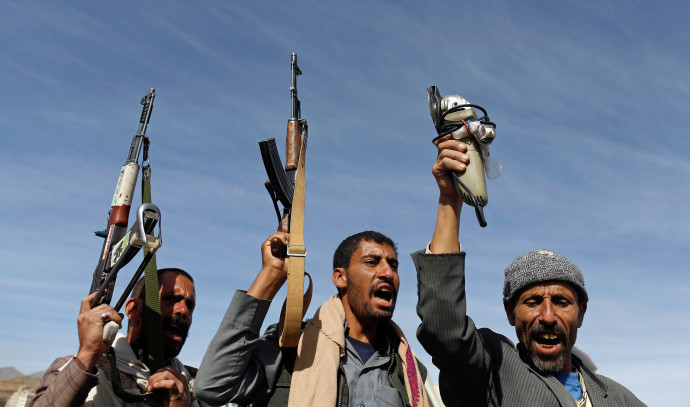Saudi Foreign Minister Faisal bin Farhan announced today (Monday) that his country is proposing a new initiative to end the war in Yemen. The initiative includes a full ceasefire under the auspices of the United Nations, the reopening of Sanaa Airport, the possibility of importing fuel and food through the port of Hudaydah and the resumption of political negotiations between the government and the Houthi rebels identified with Iran. Ben Farhan said “the initiative will take effect as soon as That the Houthis will agree to it. “
Muhammad ‘Abd al-Islam, the head of the organization’s negotiating team, said in response that “there is nothing new in the proposal,” but added that the parties would continue talks with a view to reaching a peace agreement between them. “The Houthis will continue to talk to Riyadh, Muscat and Washington to try and reach a peace agreement. The opening of airports and seaports is a humanitarian right and should not be used as a tool of pressure,” al-Islam said.
On Friday, a spokesman for the Saudi Ministry of Energy announced that a Riyadh oil refinery had been attacked by UAVs that caused a fire on the spot. Firefighters were able to contain the blaze. A spokesman for the Ministry of Energy called the attack a “cowardly act” and condemned it.
Earlier, the Houthis announced that they had carried out a sixth attack on Aramco in Riyadh using six UAVs. Of the Saudi Coalition in Yemen.
The Houthi organization began as the “Young Believers” organization – BY, founded in 1992 in the Saada district, by either Muhammad al-Houthi or his brother Hussein al-Houthi. BY established school clubs and summer camps with the aim of “promoting the revival of the Zaidi movement” in the march. About two years later, between 15,000 and 20,000 students participated in their summer camps.
Following the US invasion of Iraq in 2003, BY began preaching anti-American and anti-Semitic slogans at the Saleh Mosque in Sanaa, following Friday prayers. This led to frictions with the government, which even arrested about 800 BY members in 2004. In that year, President Ali Abdullah Saleh invited Hussein al-Houthi to meet in Sanaa, but Hela refused. On June 18, 2004, Saleh sent security forces to arrest Hussein. This operation led Hussein to launch an armed campaign against the government, he himself was killed on September 10, 2004, but the organization’s terrorist activities began to flourish and continued until the ceasefire agreement signed in 2010.
The Houthis participated in the coup in Yemen in 2011 but rejected the November 2011 Gulf Cooperation Council resolutions which included immunity for President Saleh and also refused to participate in a coalition with him.
Through violent resistance, the Houthis were able to gain full control of the march district as well as large parts of the districts of Imran, al-Juf and Hajah.
In September 2014, parts of the capital Sanaa, as well as government offices and a radio station, were taken over. The fighting continued when the Houthis were fiercely opposed to Sunni al-Qaeda companies in Yemen, but their control increased until in practice in February 2015 the uprising was successful so the Houthis announced that they were in fact controlling the whole of Yemen and set up a “soon” government. And that “their hand is outstretched for cooperation, partnership and fraternity for all who are interested in assisting in construction and not in the destruction of the state.” They dissolved parliament and declared the establishment of the Revolutionary Council as the governing body of Yemen.
